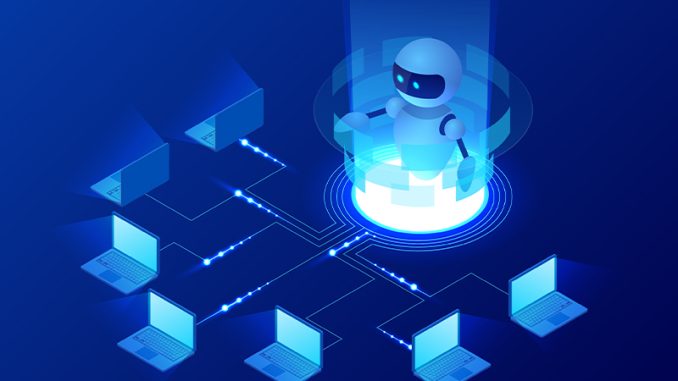
The future of personalization in digital marketing
The COVID-19 lockdown fast tracked the use of and hence the growth of digital marketing. With the shutdown of physical businesses and interactions, organisations and consumers were very quick to shift to online activities.
Marketers are now quickly learning to personalise every step of the consumer journey. The consumers also expect more of this personalisation leading to marketers scrambling to understand how to move on from basic personalisation to hyper personalisation. In a study conducted by Accenture, it found that 91% of consumers are inclined to shop with brands who have engaged with them proactively and provided them with relevant offers. When personalisation is done correctly, it allows marketers to break through clutter. Brands like Amazon, Netflix are some of the pioneers in personalisation in digital marketing.
Why the hype around personalised marketing?
The benefits of personalisation include better brand recall, improved customer satisfaction, increase in conversation rates and better overall website metrics.
As per a McKinsey report, 71 percent of consumers expect personalisation from brands and over 75 per cent are unhappy when it doesn’t happen. This leads to switching of brands or moving to better experiences. The same McKinsey report says that brands that use personalisation report up to 40 per cent more revenue than brands that don’t and have seen other measurable results from their personalisation campaigns.
However, challenges and expectations are constantly changing the rules and dynamics of the digital marketing world while offering marketers the platform to rethink how they would like to engage with their consumers.
Trends in Personalised Digital marketing:
Let us look at what will drive the personalisation of digital marketing in the future.
Hyper-personalisation
Marketers are now customising marketing activities and experiences for individual customers using AI, data, and analytics. Known as hyper-personalisation, this is said to be the future of customer engagement in digital marketing. The ability to network and connect* with consumers, understand their needs, predict what they may want in the future and tailor the communication and engagement to address those needs and wants is now going to be the key differentiator for brand marketers.
Using real time data, emerging technologies like big data, AI and machine learning play a key role in helping marketers make experiences relevant yet fun for their customers. Two companies – Netflix and Kindle are examples of businesses who use real time data to analyse customer behaviour and habits and then use AI to customise engagement opportunities with them.
And customers approve of hyper-personalisation! Over 80% of them in a study by Epsilon said that they would shop online from stores which offered personalised experiences.
Omnichannel marketing experiences
When the customer journey spans multiple channels like email, mobile, SMS and apps, why shouldn’t personalised experiences? Driven by customer expectations for a unified brand experience, marketers are now looking to provide a personalised omnichannel experience across multiple touchpoints. The key requirement here would be for content that can be readily formatted for the different channels and investments into AI which will be used to automate channel and campaign selection.
One-to-one engagement with consumers
With hyper-personalisation comes one-to-one engagement where customers desire personal relationships with brands.
Focussing on retention will be important
While customer acquisition will always be a priority, retention of existing customers costs a lot less than acquiring new ones. Their interest in the brand can be brought back with targeted one-to-one communication (for e.g., basket abandonment) and is a great way to increase conversion rates through email marketing.
AI-driven personalisation
All these hyper-personalisation and integrating experiences across channels are being made possible due to AI which has aided advanced personalisation capabilities like:
And finally, first party data will be the lifeline of marketers
With Google planning to do away with third party cookies in 2023 and marketers no longer trusting third party data, it is becoming increasingly important to collect first party data i.e., information collected directly from consumers. A study conducted by PwC says that shoppers are willing to pay up to 16 per cent more for personalised experiences which can only come from relevant data collected from the consumers directly.
However, with data privacy concerns mounting among consumers, it is also important for organisations to use the data responsibly and ethically and only for intended purposes.
Looking forward
In today’s increasingly unpredictable and hyper competitive and cluttered world, offering personalisation in digital marketing is no longer a delight factor, but a basic requirement that consumers expect to have. They are more likely to buy from and be loyal to brands who they feel listen to them, understand their requirements and cater to them. Hyper-personalisation helps marketers do that using technological advancements like AI, big data and machine learning. It is the future of digital marketing and marketers would do well to be prepared!
*For organizations on the digital transformation journey, agility is key in responding to a rapidly changing technology and business landscape. Now more than ever, it is crucial to deliver and exceed on organizational expectations with a robust digital mindset backed by innovation. Enabling businesses to sense, learn, respond, and evolve like a living organism, will be imperative for business excellence going forward. A comprehensive, yet modular suite of services is doing exactly that. Equipping organizations with intuitive decision-making automatically at scale, actionable insights based on real-time solutions, anytime/anywhere experience, and in-depth data visibility across functions leading to hyper-productivity, Live Enterprise is building connected organizations that are innovating collaboratively for the future.

Leave a Reply